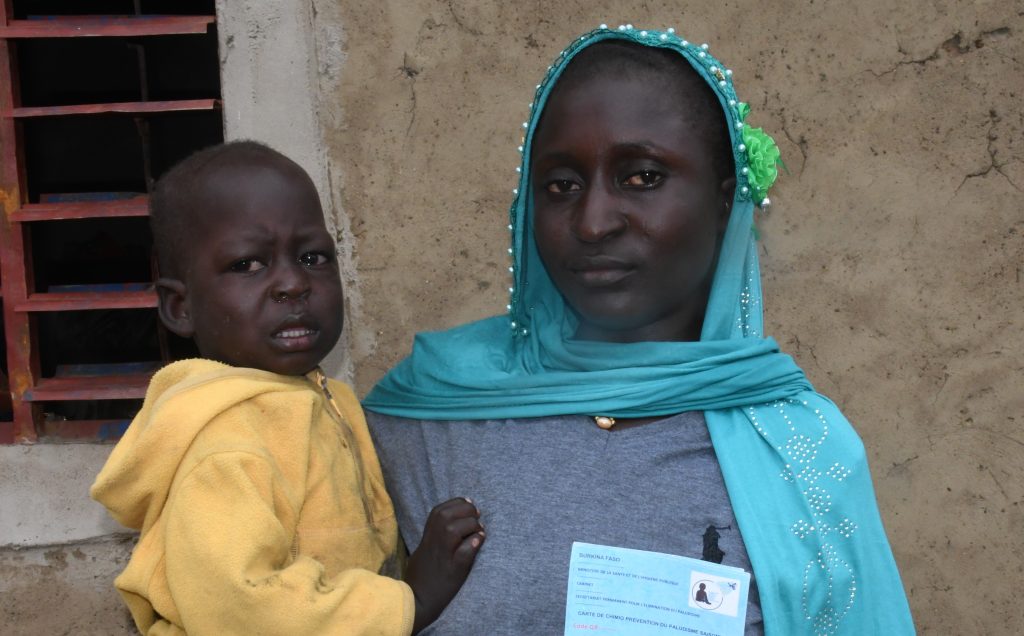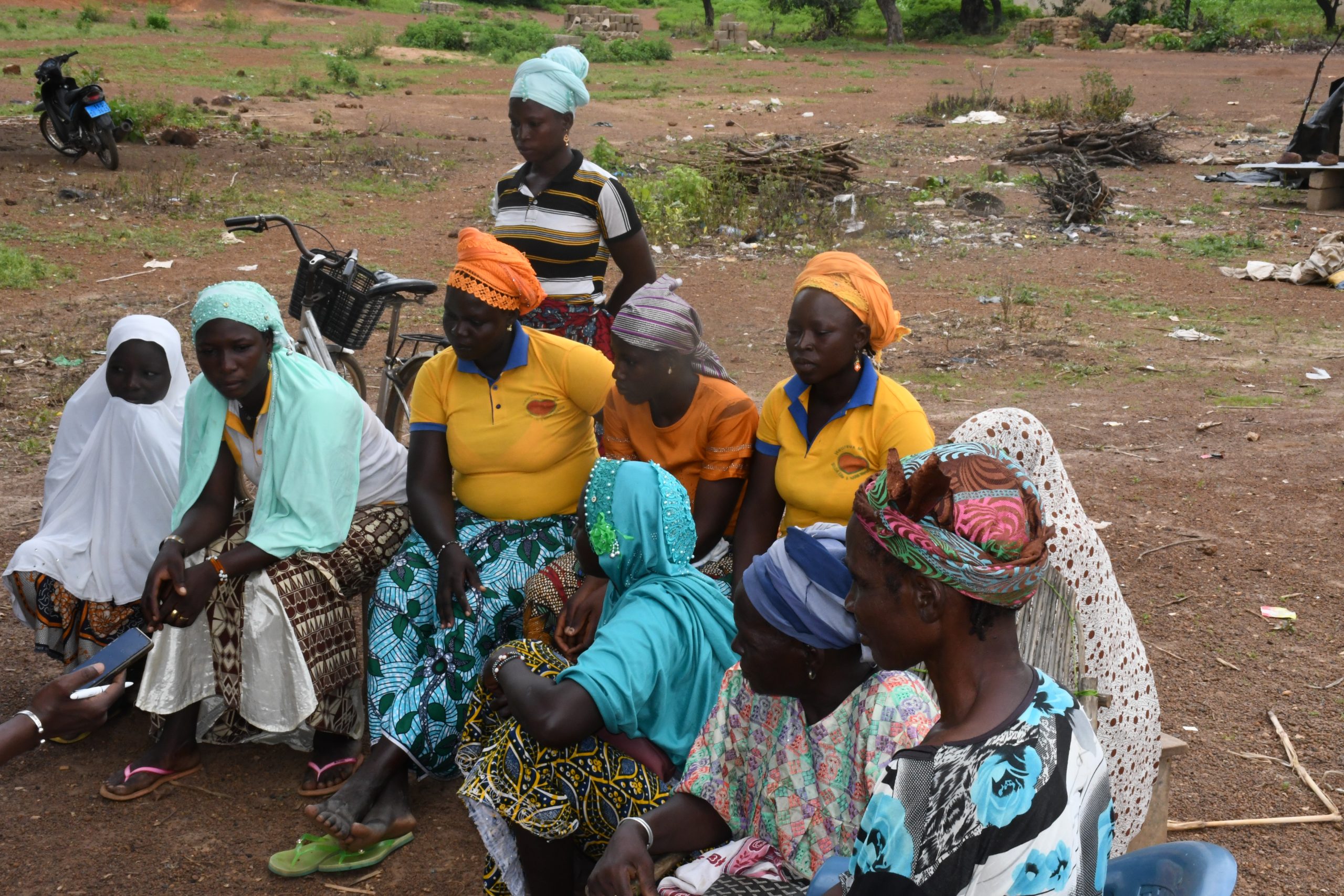Saïbatou Bamogo, a mother of five children, used to live in a village in a northern region of Burkina Faso. She earned a living by farming and raising sheep and goats. However, attacks by armed groups forced Saïbatou and her family to move to an internally displaced persons camp more than 275 miles away in the south of the country.
Saïbatou’s children, like many other internally displaced children living in makeshift housing, aren’t safe from another threat—malaria. The threat is particularly great when malaria transmission rises after the onset of the rainy season. Families live close to millet and maize fields rife with puddles that mosquitoes breed in. The cracks and openings in their makeshift homes allow mosquitoes to enter at night easily. The sleeping spaces are crowded, making it difficult to use mosquito nets for protection.
Malaria is a double threat to these families because parents of sick children are often unable to work to support their families.
“When a child suffers from malaria, it’s as if the mother is sick too, because she can’t do anything,” said Saïbatou. “She has to give up everything to look after them. This situation is all the more difficult for us internally displaced people.”

Saïbatou with one of her two children under the age of five who received preventive medicine to protect them from malaria during the rainy season. Photo credit: Souleymane Zaré, IHS/Jhpiego-Burkina Faso.
The World Health Organization estimated that Burkina Faso had more than 8 million malaria cases and 19,000 deaths in 2022. Young children make up the majority of deaths from malaria in sub-Saharan Africa.
The U.S. President’s Malaria Initiative (PMI) protects children in Burkina Faso from malaria by providing them with preventive medicine—called seasonal malaria chemoprevention—each month during the rainy season. The children receive 4 or 5 doses of the medicine, depending on the location and local conditions.
“Thanks to the antimalarial drugs my children receive every month, they no longer suffer from malaria. It’s a great relief for us, and I can go about my work in the fields,” said Sabitou.
Across Burkina Faso, more than 300,000 internally displaced children were provided preventive medicine to protect them from malaria in 2023 through PMI support.
Integrated Health Services is a five-year project funded by the U.S. Agency for International Development and the U.S. President’s Malaria Initiative that supports the Government of Burkina Faso to reduce mortality and morbidity due to malaria and improve reproductive, maternal, newborn, child, and adolescent health and nutrition.
Cover photo: Saïbatou (center in blue) and other internally displaced women discuss the instructions provided by health workers to protect their children from malaria. Photo credit: Souleymane Zaré, IHS/Jhpiego-Burkina Faso.

